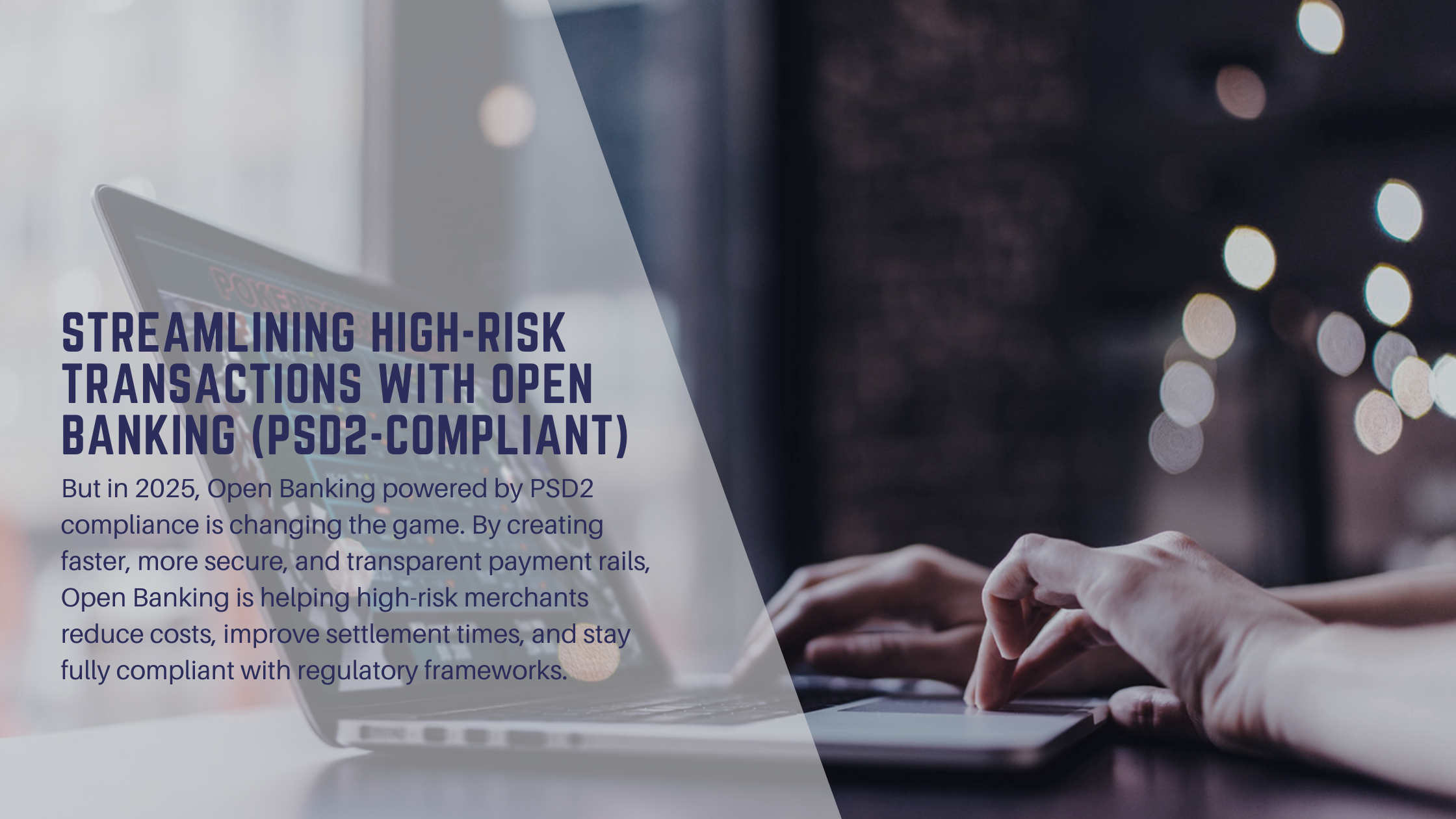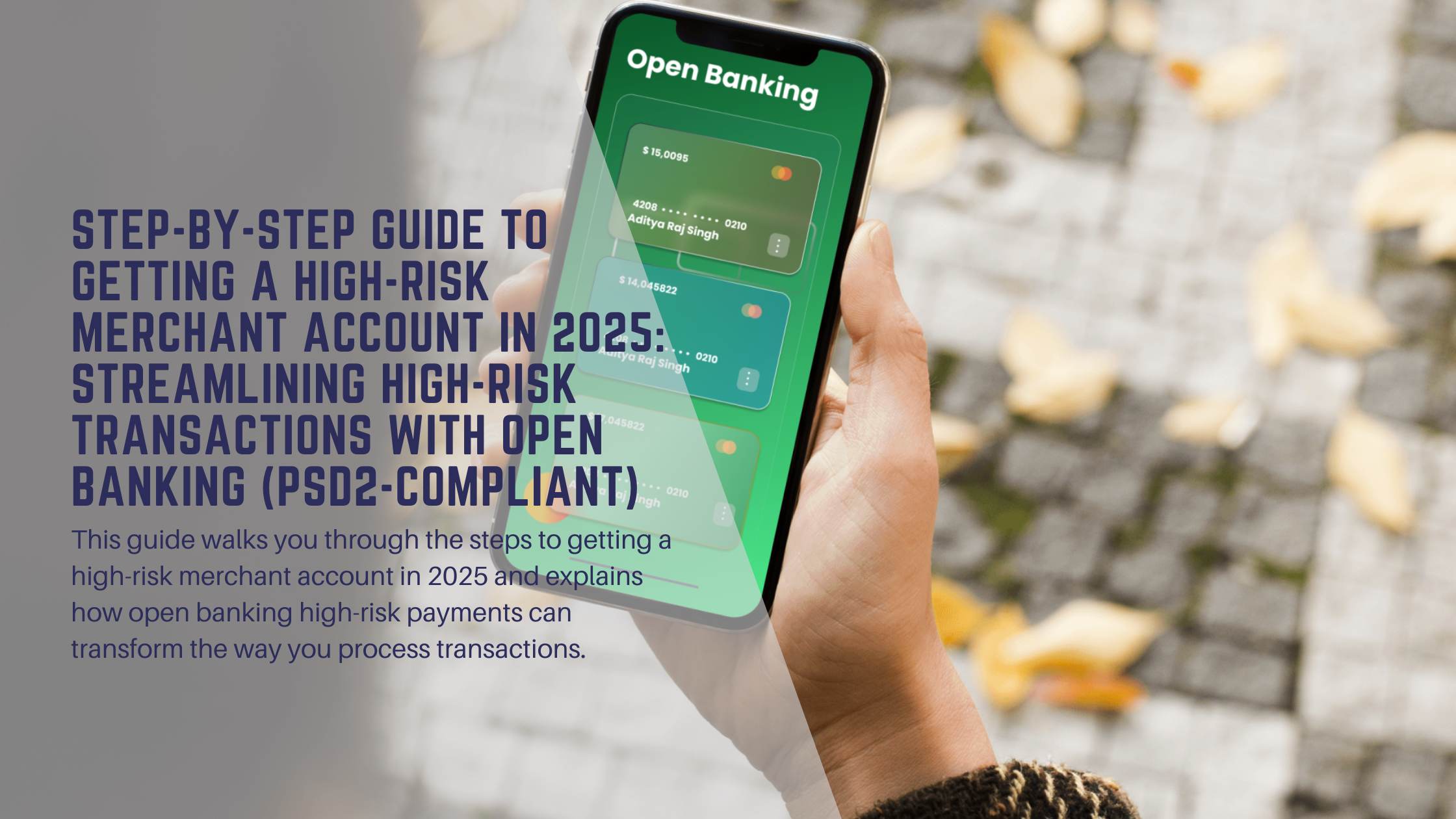February 8, 2026
IBAN & Virtual Account Solutions for High-Risk Merchants
If you run a high-risk business, traditional banking and payment solutions can sometimes be difficult to access. This is where IBAN and virtual account solutions are becoming increasingly important, especially for businesses operating across the UK, Europe, and global markets. In this guide, we explain what IBANs and virtual IBANs are, how they work, and
What Is an IBAN? A Simple Explanation for UK & European Businesses
If you send or receive payments across the UK or Europe, you’ve probably been asked for an IBAN. But what exactly is it, and why is it so important for businesses, especially those operating internationally? In this guide, we clearly explain what an IBAN is, what the IBAN meaning is, and how it’s used in
Streamlining High-Risk Transactions with Open Banking (PSD2-Compliant)
For years, high-risk businesses — from iGaming and Forex to adult entertainment and crypto — have struggled with payment delays, high fees, and compliance hurdles. Traditional banks often hesitate to work with these industries, leaving merchants with limited options. But in 2025, Open Banking powered by PSD2 compliance is changing the game. By creating faster,
Step-by-Step Guide to Getting a High-Risk Merchant Account in 2025: Streamlining High-Risk Transactions with Open Banking (PSD2-Compliant)
For high-risk merchants in industries like gambling, forex, crypto, and adult entertainment, securing a reliable high-risk merchant account has always been challenging. Traditional banks often shy away, citing chargeback risks and compliance hurdles. But 2025 marks a turning point. With Open Banking and PSD2-compliant solutions, high-risk businesses now have new opportunities for faster payments, reduced
What Does the Future Hold for Real-Time Payments?
In the third and final installment of our real-time payments series, we explore the future of instant transactions and tackle the most important questions: Will real-time payments finally take off in the US and UK? And can they become a truly global solution? Real-Time Payments: A Quick Recap Real-time payments (RTPs) allow money to move
How to Accept Recurring Payments as a Business
How to Accept Recurring Payments as a Business Boost Your Revenue with Recurring Payment Solutions Recurring payments are a game-changer for businesses looking to generate predictable income while providing customers with a seamless payment experience. Whether you’re running a subscription service, a membership platform, or a SaaS business, enabling recurring payments can streamline your operations






